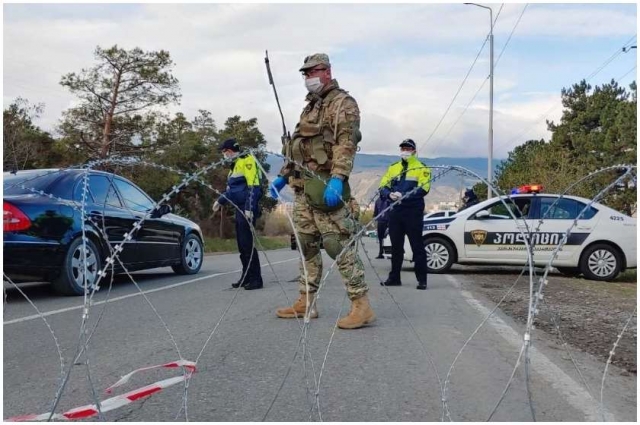"Yet as COVID-19 last week crossed the world landmark of infecting one million people - Georgia stands out among the European crowd as a country that has coped unexpectedly well with the global pandemic," The Telegraph reports.
The article, written by Associate Editor Camilla Tominey, highlights that the Global Health Security Index, which measures a country’s ability to cope with the disease did not look particularly favorably on Georgia before the coronavirus outbreak.
"Ranking the country in the Caucasus 42nd in the league of preparedness last year, the former Soviet nation appeared a minnow compared to higher ranked Britain, France, Germany, the Netherlands and Sweden," the publication reads.
The author notes that Georgia has reported just two deaths from coronavirus, despite 170 reported cases that all appeared to have been imported or are directly related to imported cases.
"Meanwhile, the death toll continues to soar in comparatively richer western European countries such as the UK, France, Spain and Italy. Why?" asks the author and answers:
"while the smaller population of some of the eastern European nations must, of course, be taken into account, it seems their more recent experience of emergencies has stood them in better stead than their more pampered neighbors."
The publication quotes Georgia’s Prime Minister Giorgi Gakharia, who told the Daily Telegraph it wasn’t just down to its “early and decisive executive action" but because: “Georgians have experienced and overcome adversity throughout history."
“Both the Government and the Georgian public quickly realized the scale of this threat,” he added. “Early action was crucial both to fight the virus and to protect the economy.”
As Alexander Scrivener of the Eurasia Democratic Security Network recently explained in a paper on the subject: “Being rich doesn’t guarantee effective policy in a time of crisis. Early signs are that wealthier European countries have tended to respond less effectively than poorer ones - at least initially.”
Comparing Georgia with the Netherlands, which both confirmed their first cases at roughly the same time at the end of February, he theorized that “the real number of Dutch cases is in the tens of thousands, while Georgia is likely still in double figures” because the former closed its borders, introduced strict social distancing measures and halted all air traffic while the latter’s reaction was “highly complacent.”
In Holland, he added: “Business, as usual, was king. Preventing “panic” (which there was no evidence of) was prioritized over actually combating the virus.”
Professor Kataryna Wolczuk, Professor of East European Politics at the Centre for Russian, European and Eurasian Studies, agrees.
“It isn’t just that some of these former Soviet countries have encountered more adversity, it is also that they already know their health care systems cannot cope. People in the UK know they can rely on the NHS - expectations are exaggerated.”
Pointing out that post-independence in 1991, the 3.7 million strong Georgian population had to grow used to regular electricity “blackouts” and having to bribe doctors for treatment, she added: “They have in their living memory times when it was really tough. They know they have to self-preserve and that they cannot afford to be blase.”
Now medical professionals, the police and the military are no longer corrupt in Georgia, they are put on a pedestal by the population. “If a doctor says something then the people of Georgia will listen and obey,” the professor added. “They are used to obeying orders.”
She added that this was in marked contrast to countries like Russia, Turkey, Hungary, Poland, Belarus, where more authoritarian governments were “keener on trying to spin a success story than solving the issue.” Mistrust of those governments meant fewer people tended to follow the guidance.
Author: Camilla Tominey
Source: The Telegraph
05 April 2020 14:57












